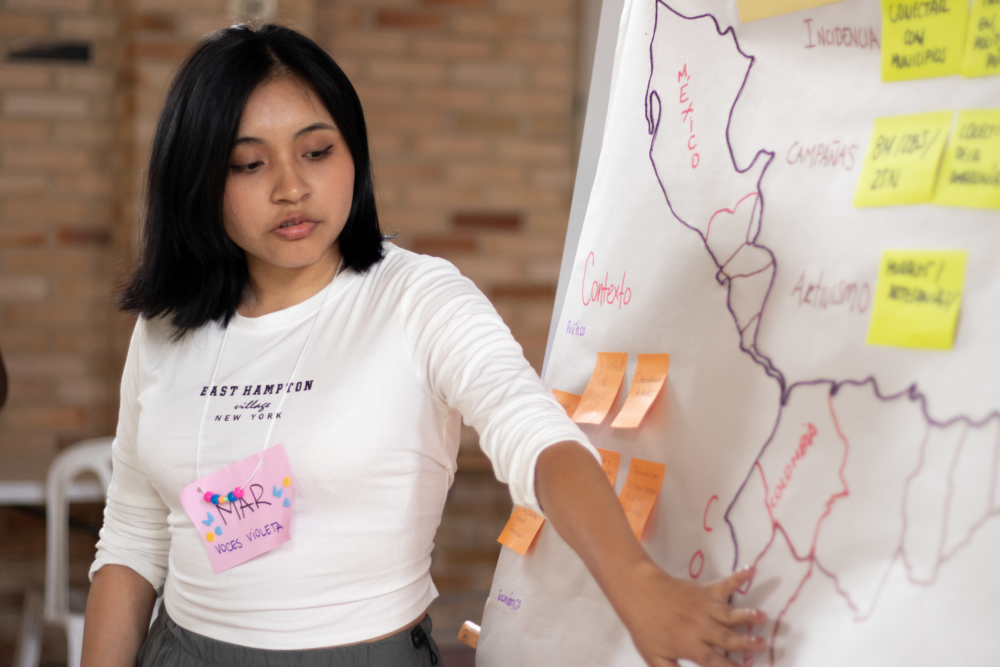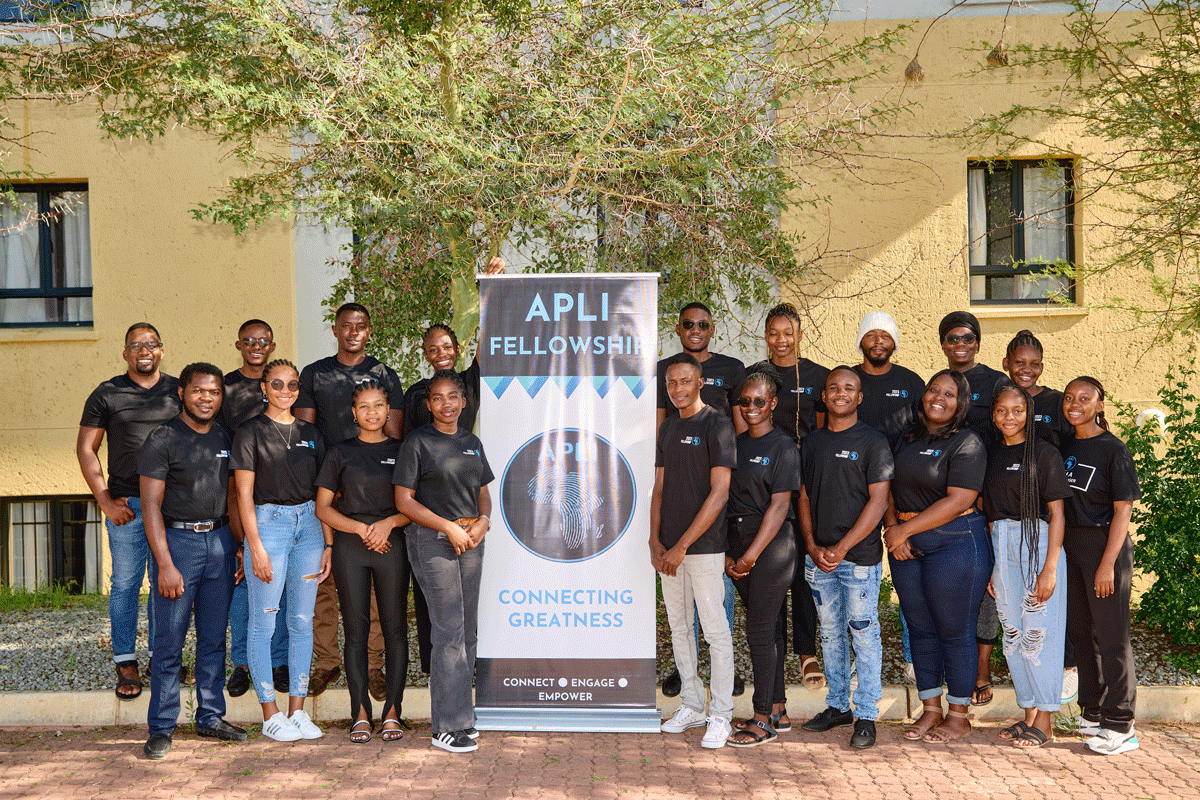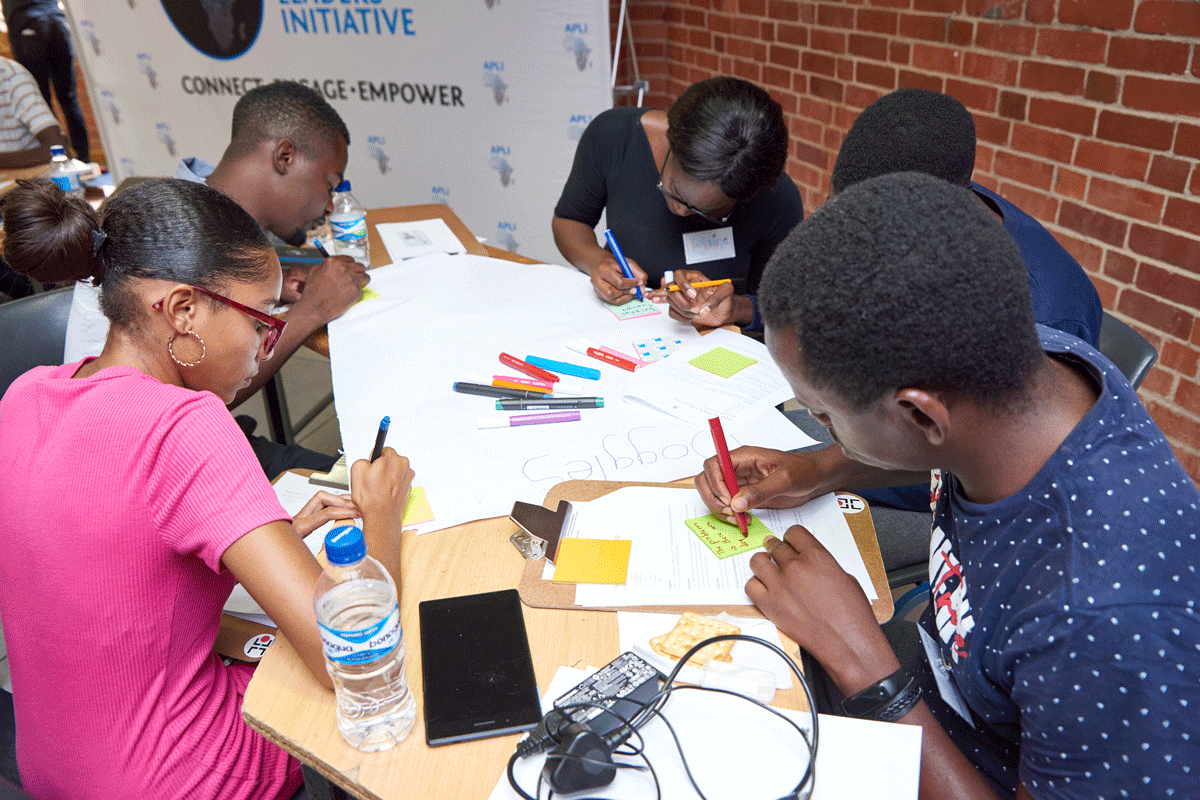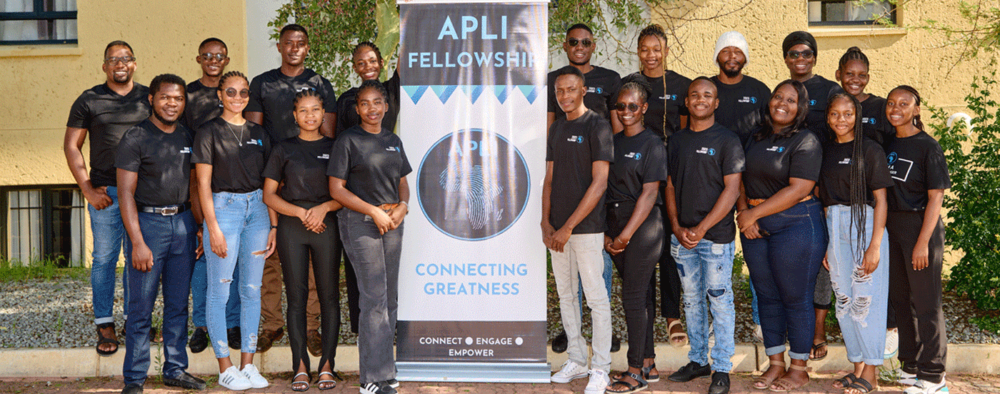
Youth power
Education, Youth power
Young people in Namibia – even those who have earned a university degree or a technical credential – face considerable challenges as they enter adulthood and embark on their careers. Many youth lack the confidence and the practical and leadership skills to secure a job, start a business, or make a positive difference in their communities. Recognizing these obstacles, Global Fund for Children’s Spark Fund partner African Pathfinder Leaders Initiative (APLI) established its flagship fellowship program for young Namibians who have the desire and potential to bring about significant change in their communities.
The Spark Fund – which was established by GFC and is supported by Avast – is a youth-led fund that invests in youth-led and youth-focused groups tackling important issues such as inequality, climate change, and mental health. It places key funding decisions in the hands of young people representing their communities. Youth panelists design the grantmaking process, select grantees, and award funding to organizations like APLI.
APLI is a youth development organization that was founded in 2018 to ensure that youth have access to the skills, resources, and networks to achieve their personal goals and contribute to the development of their communities. The organization is fully youth-led, and all APLI team members work part-time on a volunteer basis, committed to creating opportunities for young Namibians.
[image_caption caption=”The current cohort of APLI fellows. © APLI” float=””]
 [/image_caption]
[/image_caption]
The 12-month fellowship program accepts 20 young people (aged 18 to 25) each year. APLI intentionally selects applicants from different geographical locations and with different goals. The young people involved in the program are either enrolled in or have completed tertiary education, whether vocational training or university, and generally have already started their own business, social enterprise, or NGO. The fellowship program acts as both an incubator and a leadership development program to equip participants with the skills, knowledge, and networks to take them to the next level. So far, two fellowship cohorts have completed the program, and a third cohort, which began in 2022, is now benefiting from the initiative’s programming.
“It has been wonderful to see the personal and professional growth of the young people that we get the opportunity to work with,” said Sem Mandela Uutoni, APLI Co-Founder and Executive Director. “We have had some of them that have been appointed to national boards. But I think what has been most fundamental is building a community.”
The fellowship program has three fundamental pillars: leadership, entrepreneurship, and community development. To ensure that young people get the most out of the fellowship and develop well-rounded skills, the fellows do not pick one track; instead, they are taken through all of them.
APLI connects young people with industry professionals by bringing these experts on board to deliver program sessions on topics such as financial management, public speaking, and job interview techniques; hosting networking opportunities; and holding dinner events where young people meet professionals in different sectors. “Through these connections, there have been two or three cases where the fellows have landed job and internship opportunities. The most notable one was when Beatha, a fellow in the 2019 cohort, got appointed by the First Lady of Namibia to sit on the board of the First Lady’s foundation,” said Sem.
[image_caption caption=” Beatha, a 2019 APLI fellow. © APLI ” float=””]
 [/image_caption]
[/image_caption]
In addition to the program sessions, the fellows have bimonthly check-ins on their progress in personal leadership, community development, and sustainable business practices. As the fellows achieve personal growth and “pay it forward” through community-oriented activities, the fellowship program’s impact goes beyond the individual fellows to making the world a better place.
In some cases, young people want to create change but don’t know how or where to start. To allow for this, in the first year, the fellowship program brought on board two young people who just had ideas to test, with the goal of seeing whether placing them in an environment where everyone was actively engaged in their own pursuits would inspire them to put their ideas into action. This approach was a success. With the support of the program, one of these fellows set up a computer lab in a school in his community to give students experience using computers. The fellowship helped him to refine his pitch for his initiative, and he now has a fully working computer lab that is supported by different companies in Namibia.
Even though leadership programs exist in the country, young people are often unable to join them because of financial constraints. The fees for these programs create more barriers to accessing this much-needed information and mentorship. With external funding – currently provided by the Spark Fund – APLI has been able to absorb the majority of the costs associated with the training, thus providing the fellowship program free of charge to participants.
[image_caption caption= “APLI fellows engaged in group work. © APLI” float=””]
 [/image_caption]
[/image_caption]
Due to the high costs of the program activities, companies and organizations in the past have not been willing to fund the whole program, instead opting to cover different aspects of it. APLI’s strategy was therefore to approach a number of possible funders to support parts of the fellowship program, and then APLI would pool the resources and implement the program. This approach brought several challenges, especially when it came to reporting, as different funders had different reporting structures and requirements.
In 2021, as APLI searched for funding to support the 2022 cohort of fellows, the organization came across the Spark Fund for Southern Africa. Through the Spark Fund grant APLI received, the organization is able to cover the costs for the current fellowship cohort – and for the next one.
“The Spark Fund came at a critical time, and I can say for sure that if we did not receive this funding, we would not have a fellowship program this year,” Sem said.
Find out more about the Spark Fund here.
Header Photo: The current cohort of APLI fellows. © APLI
